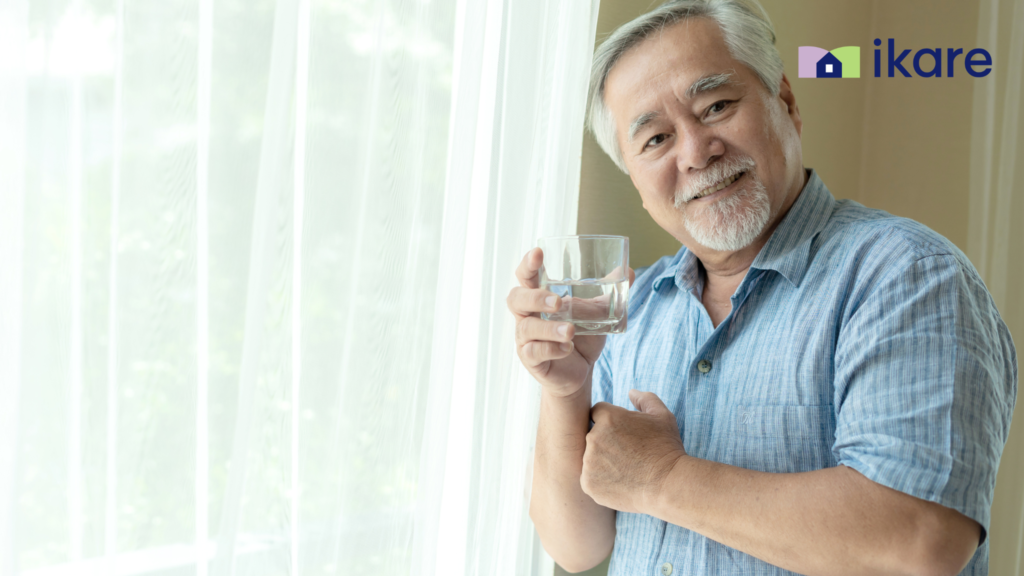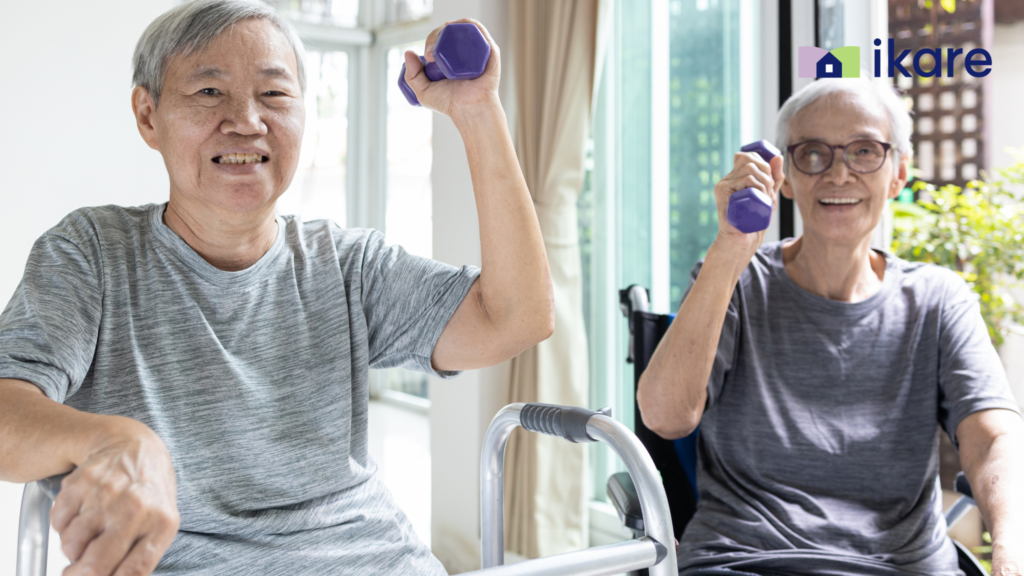
Hydration is often thought of as something to consider only during the summer months or after a long walk. But for older adults, staying hydrated is not a seasonal concern, it’s a foundational aspect of health and daily wellbeing. What many people don’t realize is that dehydration is one of the most common causes of hospital visits among seniors. Yet, it often goes unrecognized.
The signs aren’t always obvious. A senior might appear tired, a bit confused, or complain of a headache. These symptoms are easily mistaken for fatigue, medication side effects, or simply aging, but in many cases, the real issue is dehydration. Left unchecked, even mild dehydration can lead to complications such as urinary tract infections, low blood pressure, constipation, dizziness, kidney strain, or even a fall resulting in hospitalization.
How Aging Affects Hydration
As the body ages, its ability to manage water begins to change. One of the most significant shifts is that the sense of thirst becomes less sensitive. Seniors may not feel thirsty even when their body is already low on fluids. In fact, by the time they do feel thirst, they may already be experiencing mild dehydration.
The kidneys, which help the body conserve water, also become less efficient over time. This means the body may lose more fluid than it should, and be slower to replenish it. Certain medications, such as diuretics or laxatives, can increase this fluid loss even more.
There are also behavioural factors. Some older adults consciously drink less throughout the day to avoid frequent trips to the bathroom, especially at night. Others may have mobility issues, memory challenges, or simply forget to drink. While these actions are understandable, they can significantly increase the risk of dehydration and its related complications.

Subtle Signs of Dehydration
Unlike younger individuals, older adults may not show obvious signs of thirst. Instead, they may seem more tired than usual, or experience light-headedness when standing. They might develop headaches, feel more irritable or confused, or show a noticeable decrease in urination. Their skin or lips may appear drier, and constipation may become more frequent. Recognizing these subtle signs is key to preventing more serious outcomes.
Making Hydration a Gentle Habit
Helping a senior stay hydrated doesn’t mean forcing large amounts of water all at once. In fact, smaller, more frequent sips are often more comfortable. Fluids don’t have to come from plain water, warm herbal teas, diluted juices, broths, and even water infused with fruit can be more appealing and soothing. Foods like watermelon, oranges, cucumber, or soups also contribute to daily fluid intake in a gentle way.
Keeping a water bottle or cup visible and within reach can be a helpful reminder, especially for those with memory loss. Creating simple hydration routines, such as a glass of water with medications, a cup of tea mid-morning, or a calming drink after a walk, turns hydration into a quiet act of care, not a chore.

A Foundation of Wellbeing
Hydration affects everything from cognitive clarity and mood to digestion and mobility. When the body is well-hydrated, it simply functions better, the heart works more efficiently, the brain feels sharper, and balance and energy are improved.
For caregivers and families, encouraging hydration is one of the simplest and most powerful forms of support. And for older adults themselves, it’s a daily habit that builds strength, resilience, and comfort, one sip at a time.

